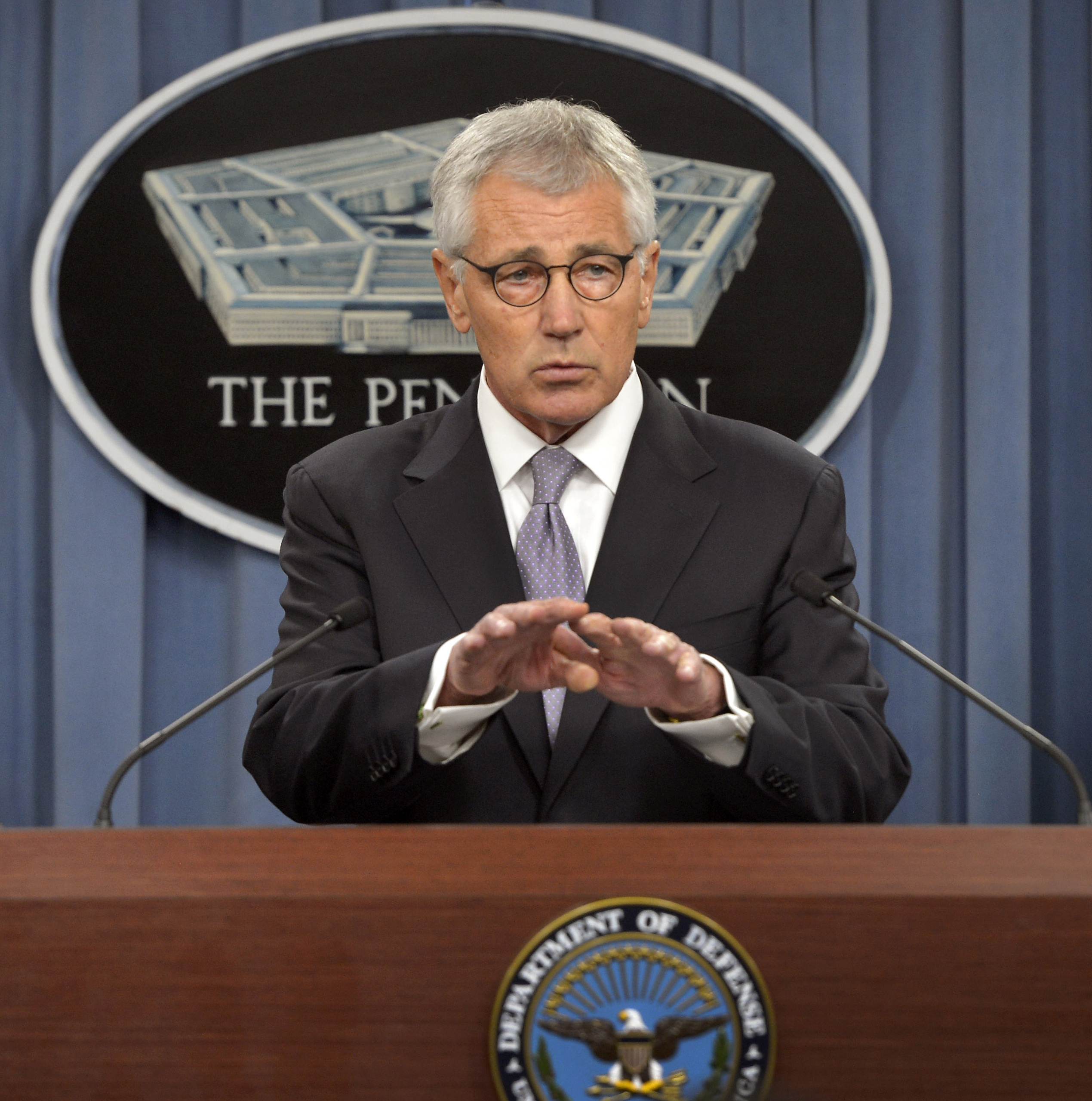
Defense Secretary Chuck Hagel termed Iraq’s prime minister’s comments that the United States was moving too slowly in sending weapons and materiel and providing training to his forces as being both wrong and not helpful.
“We have a coalition of 60 countries that have come together to help Iraq. And I think the prime minister [Haider al-Abadi] ought to be mindful of that,” speaking at what is likely his last Pentagon press conference on Thursday.
Hagel didn’t stop there, saying in addition to ammunition and small arms the United States has provided 1,500 Hellfire missiles, 250 Mine Resistant Ambush Protected vehicles and other equipment at “an accelerated pace” to the Iraqi and Kurdish forces fighting the Islamic State, also known as the Islamic State of Iraq and Syria (ISIS or ISIL), which occupies a large section of northern Iraq and Syria. He added a fourth training camp to train Iraqi forces will open soon.
When asked whether the Defense Department agreed with an estimate that 6,000 ISIS fighters have been killed in the stepped up fighting in recent months, he said, “We do know that thousands of ISIS fighters have been killed, and we do know that some of ISIL’s leadership have been killed.”
An enlisted veteran of the Vietnam War, he added, “I don’t think [body count] is the measurement” of success in combat, citing other factors such as drop offs in recruiting, supply lines being cut and communications disrupted. “Do you have ISIL on the defensive?” he said.
The burden rests on the Iraqi government to determine future success against the Islamic State and that means having Shi’as, Sunnis and Kurds believing they have a stake in it.
“That is the defining metric about success for [Abadi’s] country,” Hagel said.
“Is he moving as fast as we would like? Probably not. But in governing, especially in democracies, and when there are elections, you have certain parameters.”
If Congress does not act to roll back the automatic across-the-board cuts called for in the Budget Control Act of 2011, the Defense Department would be reducing spending by an estimated $34 billion in the coming fiscal year.
Hagel also addressed ongoing sequestration funding issues.
“We have been very deliberative and direct about what will happen if sequestration comes back.” The former Republican senator from Nebraska said it was Congress’ responsibility “to make the tough choices.” He added, “I think in the last year we made progress with the Congress” in explaining what those kinds of cuts would mean for readiness, acquisition, personnel and research and development.
The administration’s budget is expected to be sent to Capitol Hill early next month.





